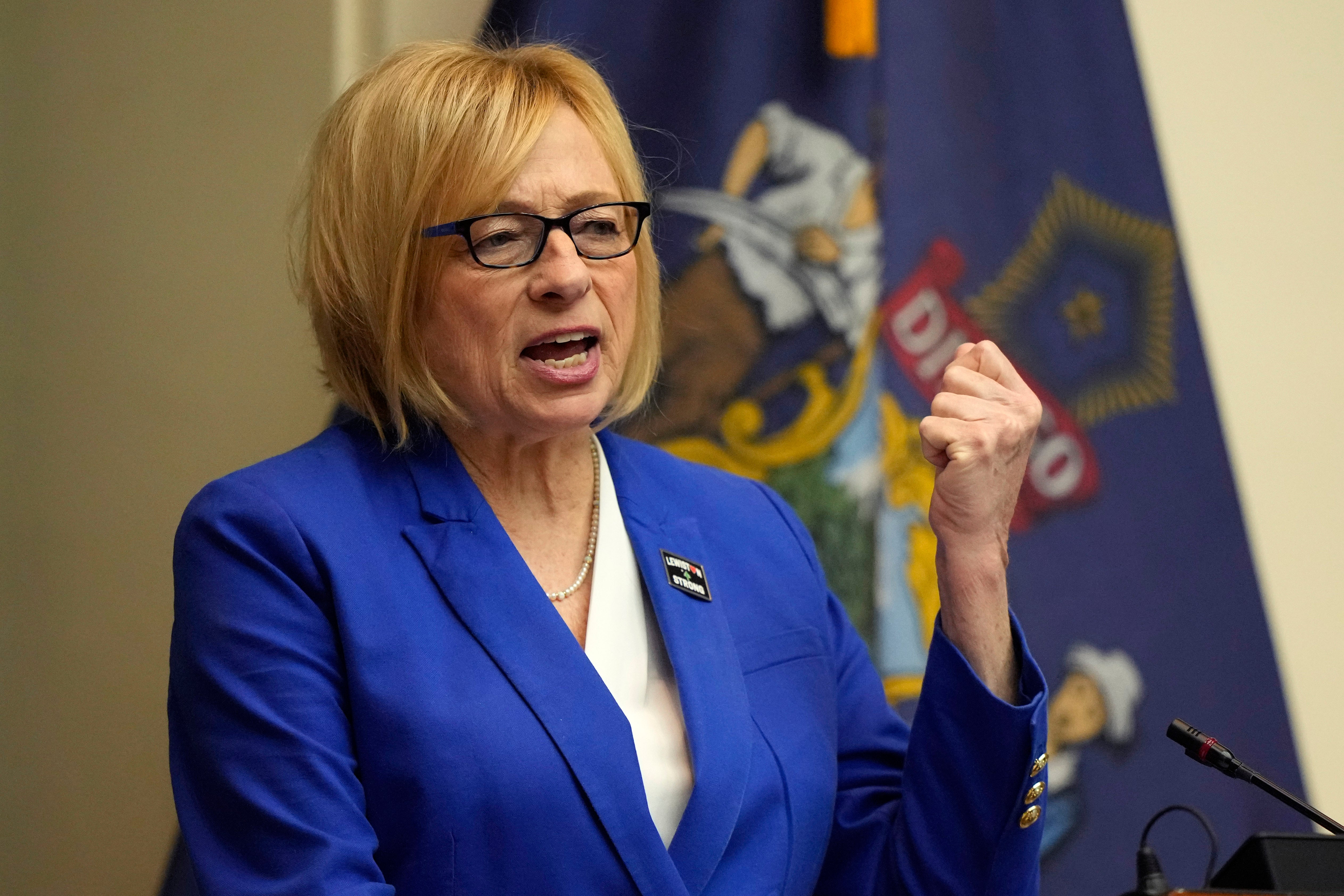Maine wants to lead in offshore wind. The state's governor says she has location for a key wind port
Maine's governor says a state-owned site on the coast of Maine will serve as the location of an offshore wind port critical to developing the nation’s first floating offshore wind power research array

Your support helps us to tell the story
From reproductive rights to climate change to Big Tech, The Independent is on the ground when the story is developing. Whether it's investigating the financials of Elon Musk's pro-Trump PAC or producing our latest documentary, 'The A Word', which shines a light on the American women fighting for reproductive rights, we know how important it is to parse out the facts from the messaging.
At such a critical moment in US history, we need reporters on the ground. Your donation allows us to keep sending journalists to speak to both sides of the story.
The Independent is trusted by Americans across the entire political spectrum. And unlike many other quality news outlets, we choose not to lock Americans out of our reporting and analysis with paywalls. We believe quality journalism should be available to everyone, paid for by those who can afford it.
Your support makes all the difference.A state-owned site on the coast of Maine will serve as the location of an offshore wind port critical to developing the nation's first floating offshore wind power research array, the state's governor said Tuesday.
Democratic Gov. Janet Mills signed a bill last year that Maine will procure enough energy from offshore wind turbines to power about half its electric load by 2040. An offshore wind port to build, stage and deploy the turbine equipment is a major component of that effort. The port is also key for developing the research array, which would include up to 12 turbines on semi-submersible concrete platforms in federal waters.
Mills said Tuesday the state has selected state-owned Sears Island, about 117 miles northeast of Portland, as the preferred site for the port facility. The site would take up about 100 acres of the 941-acre island and is the most feasible place to build the port, Mills said.
The Sears Island parcel “fundamentally makes the most sense and provides us with the best opportunity to responsibly advance offshore wind in Maine, an industry that will create good paying jobs for Maine people and deliver clean, renewable energy to stabilize and reduce energy prices for Maine people and businesses in the long run,” Mills said.
Mills has said Maine is positioned to become a leader in offshore wind development. The port is expected to cost about $500 million, and Maine is seeking funding from federal and other sources, she said. The proposal will also be subject to extensive state and federal permitting.
Meanwhile, the state has proposed to lease a site in the Gulf of Maine for the floating research array. That application is before the federal Bureau of Ocean Energy Management.
Offshore wind development has often been a contentious issue in Maine, where members of the state's historic lobster fishing industry have raised questions about how they would be affected by the development and use of turbines.
Some community and conservation groups in the state have also opposed wind development. Steve Miller, a member of the Alliance for Sears Island, said his group was planning a demonstration for Wednesday because it felt the state was “breaking its promise to Maine residents” by locating the port on the island.
The American Association of Port Authorities was quick to speak in favor of the project. Ian Gansler, the group's manager of energy, resilience, and sustainability policy, said all offshore wind projects "rely on port infrastructure for their construction, and it is crucial that Maine invest in its ports to achieve this future.”
Several conservation and labor groups also spoke out in favor of the port plan on Tuesday. Some characterized it as a boost for rural Maine jobs, while others said it will aid the production of renewable energy in New England.
“The rapid deployment of renewable energy is critical to avoiding the worst impacts of climate change and protecting Maine wildlife,” said Sarah Haggerty, conservation biologist and GIS manager with Maine Audubon. “Floating offshore wind presents an incredible opportunity to generate a large amount of clean energy while successfully coexisting with Gulf wildlife.”